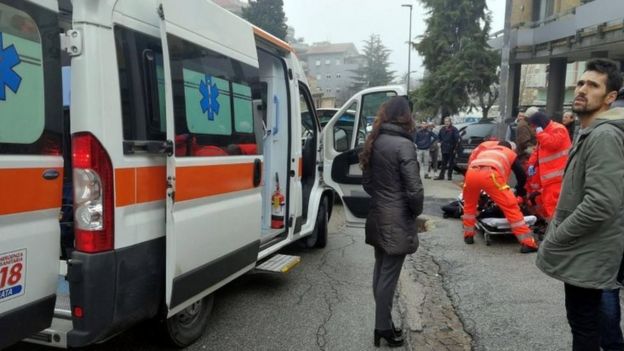By Jenilyn Brhel
Impunity Watch Reporter, Europe
WARSAW, Poland – A controversial new Holocaust speech bill that would impose jail terms for individuals suggesting Poland was complicit in the Holocaust is drawing international condemnation.

In a 57-23 vote and two abstentions, the Polish Parliament passed the measure on Thursday, February 1, the eve of Holocaust Remembrance Day. The law must be signed by President Andrzej Duda before becoming law.
If passed, the law will impose at a minimum fines and at a maximum three-year prison sentences for individuals who mention phrases like “Polish death camps.”
The legislation specifically states that “whoever accuses, publicly and against the facts, the Polish nation, or the Polish state, of being responsible or complicit in the Nazi crimes committed by the Third German Reich … shall be subject to a fine or a penalty of imprisonment of up to three years”.
Poland was invaded and occupied by Nazi Germany in 1939. Death camps built by Germans were operated on Polish land. Three million Polish Jews were killed in the Holocaust.
Under mounting international pressure, President Duda has agreed to review the bill to determine whether he will sign it, but has stated that “we, as a state, as a nation, have a right to defend ourselves from an evident slander, an evident falsification of historical truth, which, in this case, for us is a slap in the face.”
Congress has urged Polish officials not to pass the bill, stating concerns that the bill will inhibit freedom of speech and threaten Poland’s international relationships.
Benjamin Netanyahu, Israel’s Prime Minister called the law “baseless; I strongly oppose it,” in a statement released on Saturday. “One cannot change history, and the Holocaust cannot be denied.”
International organizations such as Israel’s Holocaust Museum, Yad Vashem, the United States Holocaust Memorial Museum and the Simon Wiesenthal Center in Los Angeles have also condemned the legislation.
The bill has resulted in a resurgence of anti-Semitism in the country. Anti-Semitic comments on social media in Poland have increased, with minority groups calling on President Duda to “counteract all forms of xenophobia, intolerance and antisemitism.”
A number of Polish artists, journalists and politicians have signed an open letter calling for the bill’s repeal.
The pending legislation has been in preparation for more than a year. President Duda has three weeks to decide whether to pass the law.
For more information, please see:
ABC News – Minority Groups in Poland Decry Aggression, Anti-Semitism – 4 February 2018
BBC News – Poland’s Senate Passes Controversial Holocaust Bill – 1 February 2018
The New York Times – Poland’s Holocaust Blame Bill – 29 January 2018
The New York Times – Poland Tries to Curb Holocaust Speech, and Israel Puts up a Fight
Reuters – Pressure Mounts on Poland to Back Away From Holocaust Bill – 3 February 2018



